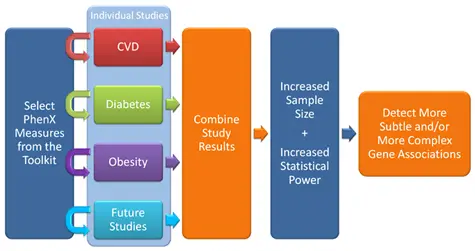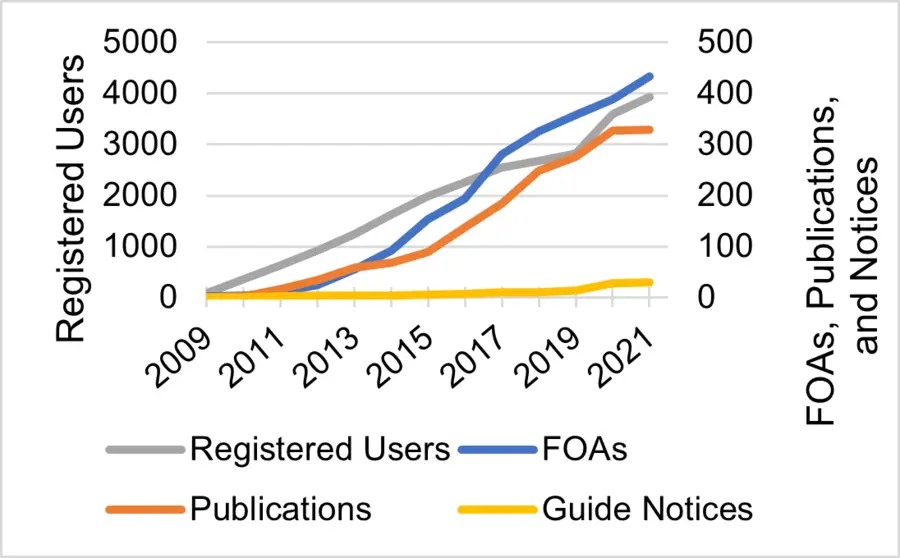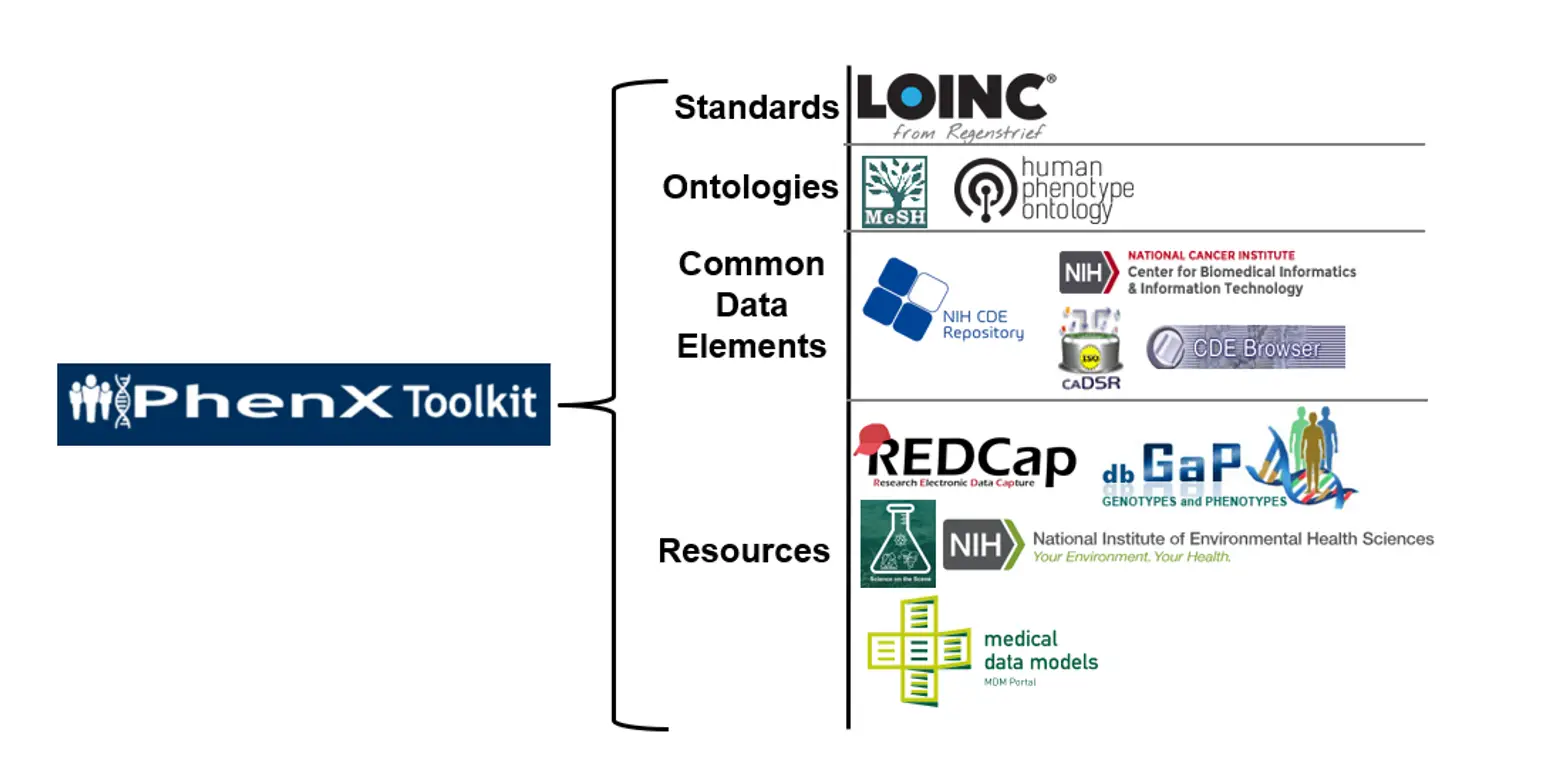Standard measurement protocols support cross-study analysis and increase study impact
Data produced from research that can be fully shared, re-used, and validated in the broader scientific data ecosystem have increased utility and impact. The National Institutes of Health (NIH) stresses this point by urging researchers to produce data that meets its FAIR principle—defined as data that is “findable, accessible, interoperable, and reproducible.” The ability to effectively share data begins with including standard measurement protocols when designing a new study (e.g. survey forms, questionnaires, bioassays). If standard protocols are widely adopted, then the data collected will be consistent and directly comparable. This makes it easy to share data with other investigators who have used the same measurement protocols.
In the increasingly collaborative and data-centric scientific environment, use of established standard protocols lends scientific credibility and reliability to any research study. Many protocols exist to measure a wide variety of phenotypes, and choosing a well-established standard measure can be challenging, as well as time consuming. By providing access to well-established protocols, the PhenX Toolkit alleviates the need for time-intensive literature reviews and developing questionnaires from scratch. When it comes time for data analysis, use of standard measurement protocols allows for direct data comparison and combination with many published studies in the database of Genotypes and Phenotypes (dbGaP) and other public data repositories.
A Freely Available Web-Based Resource
The PhenX Toolkit is a freely available, online resource that biomedical researchers can turn to with confidence to identify well-established, recommended measurement protocols. With a catalog of more than 800 protocols addressing human phenotypes and exposures, the PhenX Toolkit allows researchers to design their studies to maximize data sharing, even if a particular research area falls outside of their primary area of expertise.

Developed under a cooperative agreement between RTI International and NIH’s National Human Genome Research Institute (NHGRI), the PhenX Toolkit offers data collection protocols for a wide range of research domains that include demographics, diabetes, nutrition and dietary supplements, neurology, and environmental exposures. To add depth in specific research areas, the Toolkit also includes specialty collections in areas such as substance abuse and addiction, mental health, and blood sciences. These protocols are suitable for collecting data in a variety of study types, including epidemiological, translational, clinical, and genomic studies.
Each protocol in the Toolkit has been selected and vetted using a consensus process involving Working Groups of domain experts who work together to review and select well-established, broadly validated protocols in that field. After collecting feedback and comments from the broader scientific community, the Working Group submits their final recommendations for protocols to include in the PhenX Toolkit. This consensus-based process produces scientific credibility and confidence in the protocols selected. The PhenX Toolkit aims to be responsive to the needs of the scientific community and therefore works quickly to disseminate protocols for pressing public health issues as they arise.
Modernizing the NIH Data Ecosystem
The PhenX Toolkit has had a significant impact on how NIH thinks about standard measures. NIH encourages researchers to use the PhenX Toolkit and has referenced PhenX in more than 440 Funding Opportunity Announcements and 28 NIH Guide Notices to date. Recent NIH Guide Notices describe expectations for sharing quality data (NHGRI) and for collecting common data elements (NIMH).
Currently, PhenX protocols are being used to coordinate data sharing and analysis of multisite data in high-priority initiatives such as REsearching COVID to Enhance Recovery (RECOVER).
PhenX protocols are now integral to related biomedical resources, such as Research Electronic Data Capture (REDCap), dbGaP, Logical Observation Identifiers Names and Codes (LOINC), and the National Library of Medicine (NLM) Common Data Element (CDE) Resource Portal.
PhenX Toolkit Impact Over Time
Since its launch, the Toolkit has been visited more 1.7 million times and currently has more than 4,000 registered users. Use of standard measurement protocols from the PhenX Toolkit promotes a common currency for data collection that in turn enables analysis of shared data. Shared data analysis leads to a better understanding of the etiology, progression, and treatment of human disease, which ultimately leads to improvements in patient care, health outcomes, and quality of life.

Continuously funded by NHGRI since 2007, PhenX has received additional funding from a variety of NIH Institutes and Centers. In addition to NHGRI, current or prior funding for PhenX has been provided by the National Institute on Drug Abuse (NIDA), the Office of Behavioral and Social Sciences Research (OBSSR), the National Institute of Mental Health (NIMH), the National Heart, Lung, and Blood Institute (NHLBI), the National Cancer Institute (NCI), and the Tobacco Regulatory Science Program (TRSP).
- National Human Genome Research Institute




